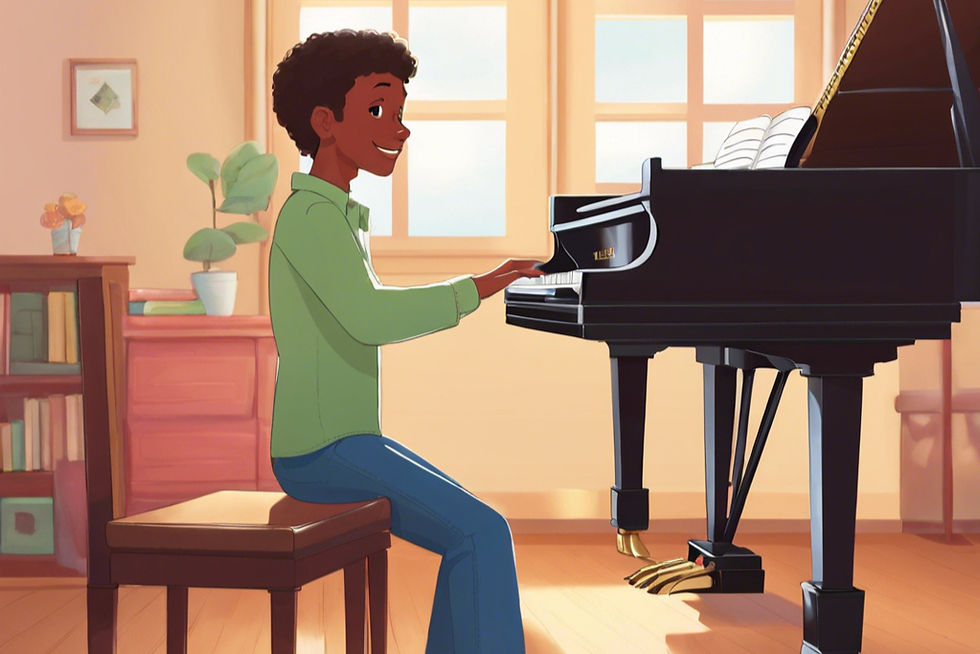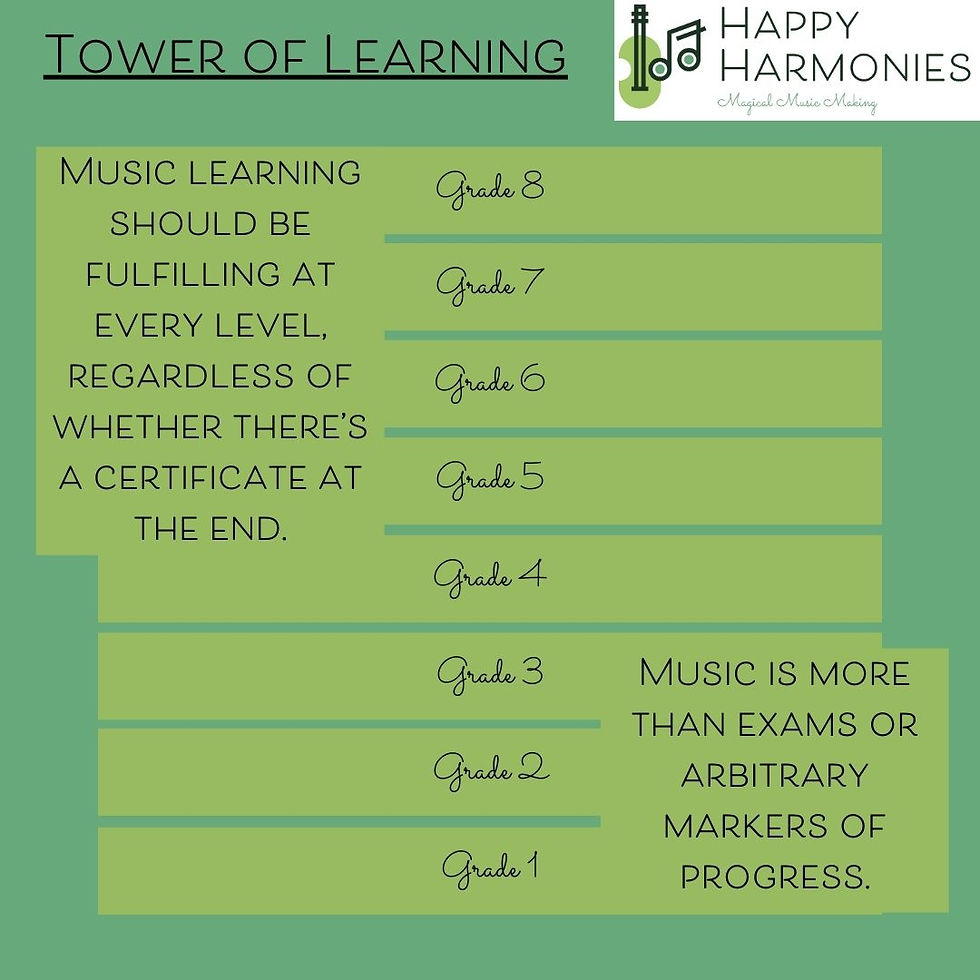Why Did We Love (or Hate) Music Lessons as Children?
- Ruth Saunderson
- Nov 8, 2024
- 3 min read
Updated: Nov 9, 2024
When we think back on our childhood experiences with music lessons, reactions are often mixed. Some people smile, remembering a joyful experience that sparked a lifelong love of music. Others, however, recall feeling pressured, bored, or even stressed by the process. Reflecting on these varied experiences, I began wondering why so many adults look back on childhood music lessons with frustration or even dread.
A Journey into Understanding
Over the past few weeks, I've had conversations with people who shared their own stories of music lessons as children. As a music teacher, my goal is to create an environment where every student feels excited and motivated to learn—not where they feel intimidated or pressured. So, I wanted to hear firsthand why music lessons felt rewarding for some and off-putting for others, and how I could apply this insight to foster a more positive experience for my own students.
The Impact of Early Repertoire Choices
One common theme I heard was about the music repertoire for beginners. Many recalled that as beginners, the music they played felt repetitive or dull, which dampened their excitement. The simple pieces designed for early learning often lack the emotional pull or catchiness of more advanced music, but they are an essential step in learning. Still, we can make this phase as engaging as possible by incorporating variety, rhythm games, and even simple improvisation, which allows students to feel a sense of ownership and creativity early on.

Exam Pressure and the “Pyramid” Model of Learning
Another prominent issue was the pressure to take exams. For many, music lessons became closely associated with preparing for exams, which made learning feel more like a performance test than a creative exploration. This “pyramid” model of learning—a structure built on exams as the main benchmarks of progress—creates a situation where students may only master certain skills to pass a test, rather than building a well-rounded foundation.

As a result, students might reach a high level of skill with a few complex pieces but struggle when asked to apply other skills, such as sight-reading or improvisation. This is like building a pyramid with a narrow point at the top—if one thing is removed, the whole structure wobbles. Instead, I aim to teach in a way that builds a strong foundation in all areas, creating a tower of knowledge that students can keep adding to over time.

Building a Tower of Skills, Not Just Passing Exams
Music is more than exams or arbitrary markers of progress. It’s an art, a way to express ourselves, and an inherent part of being human. Exams can be a useful tool for some students who enjoy setting goals and seeing measurable progress, but they shouldn’t be the only way to feel accomplished. Music learning should be fulfilling at every level, regardless of whether there’s a certificate at the end. In my teaching approach, I offer exams as an option but never as the primary focus of our lessons. I encourage students to explore, improvise, and find joy in their own music journey.
Reframing Success and Rediscovering Joy
Music lessons should be about building a connection to music that lasts a lifetime. I want my students to feel excited about their progress, not pressured to perform or fearful of judgment. By focusing on creating a solid, enjoyable learning experience, I hope to foster that joy and love for music that many adults feel they missed out on as children.
Ultimately, if we can shift the focus from performance pressure to musical enjoyment, we might just be able to inspire a new generation of musicians who see music as an enduring source of joy, expression, and connection. What about you? Did you love or hate music lessons as a child? I'd love to hear your thoughts on what made the difference!





Comments